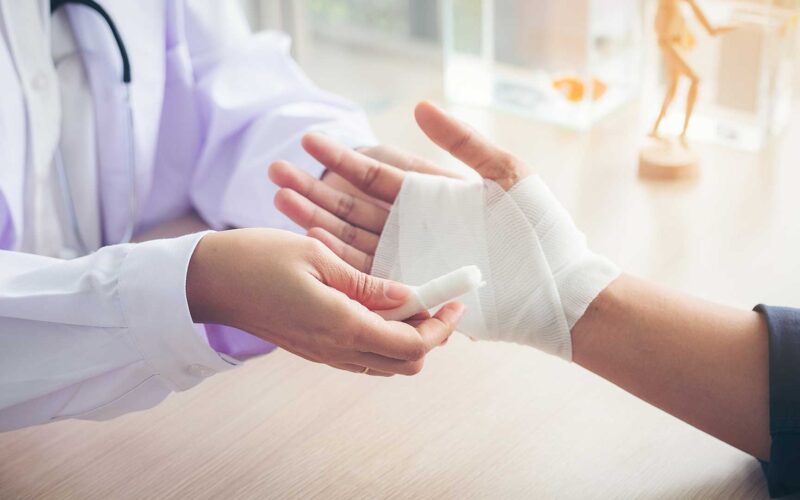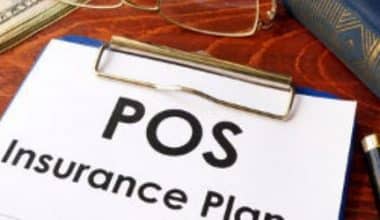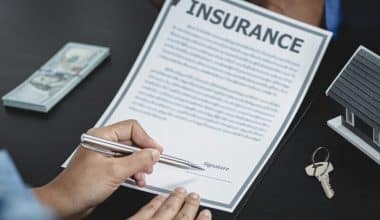Most homeowner insurance policies offer personal liability coverage. Personal injury and property damage are covered under the personal liability section of your homeowners’ insurance. If you injure someone or cause damage to their property, your homeowners’ insurance will cover you financially; that’s if you are held legally accountable. We recommend getting adequate coverage to protect your assets because increasing your personal liability policy limit is often affordable. Otherwise, you run the risk of incurring significant financial losses. We further explain all that you need to know about personal liability homeowner’s coverage and renters insurance in this article.
What is Personal Liability Insurance?
Personal liability insurance is designed to protect you and your family financially. Your home’s policy’s personal liability coverage pays for claims of physical injury and property damage caused by people for which you or other covered members of your household are legally accountable. For example, if someone falls down your stairs or your child knocks a ball through a neighbor’s window, damaging an expensive vase, you could be held legally liable.
Many personal liability coverage homeowners insurance policies include a minimum of $100,000 in personal liability coverage. This means the insurance company can pay up to $100,000 in total to affected people in a single incident. Higher limitations are available if you believe you require greater protection. You can also buy an umbrella policy to expand your liability coverage beyond the limits of your basic liability insurance.
What Does Personal Liability Insurance Cover?
If you were directly putting someone’s health or property in danger due to misfortune or neglect, personal liability insurance would protect you. For instance, suppose a visitor comes into your home and slips on a damp floor, damaging their back. They believe you are to blame since you failed to ensure the place was secure.
Your children are playing in the garden when they hit a neighbor’s window with a ball and break it. Your neighbor accuses you of being to blame since you failed to control your children.
You drop a lighted cigarette while on vacation in another country, triggering a fire that ruins a business. The company sues you for damages and seeks compensation for lost earnings as a result of the temporary closure.
If you’re wondering, “Do I Need Personal Liability Insurance?” it’s vital to remember that you may already b by another insurance package in many cases.
It’s doubtful that your daily activities will be extremely dangerous in your personal life. During working hours, however, you may spend more time dealing with the public, potentially raising the risk of mishaps for which you may be accountable.
What is Not Covered by Personal Liability Insurance?
Certain personal responsibility claims will be covered by your personal liability coverage homeowners or renters’ insurance, while others may be excluded. Among the most common instances are:
- Your car insurance should cover these expenses.
- Intentional bodily harm or property damage caused by you or a family member.
- You or any covered inhabitants in your house experience injuries or damages.
- Any bodily injury or property damage resulting from any business you operate or from your professional activity.
How Much Coverage Do You Need?
Personal liability coverage ranges from $100,000 to $500,000 in most conventional home policies. It may be difficult to imagine exceeding your personal liability homeowner’s insurance coverage limit. But if someone is hurt, costs can swiftly escalate. Your liability insurance protects you in other ways as well. If your child, for example, accidentally burns down someone else’s home, you could be accountable for a large sum of money in property damage and personal injury claims. A lawsuit, in this case, might wipe away your whole net worth. including your savings, equity in your home, and other assets.
Consider your future earnings, whether you own several residences, and whether you have teens who may be at increased risk for damages when determining the appropriate amount of personal liability coverage. It may be prudent to consider acquiring extra liability or umbrella insurance coverage, depending on the assets you wish to protect. When in doubt, contact your insurance agent to review your homeowner’s or renters’ policy’s coverages.
Personal Liability Coverage Renters Insurance
Personal liability coverage renters insurance is a component of a renters policy that protects you if you injure or damage the property of others.
Let’s imagine you’re playing softball in the yard behind your rental property and your 12-year-old daughter smashes a home run right through the kitchen window of your next-door neighbor. Treating any injuries, up to the amount of your coverage. It may also cover your legal expenses.
What Isn’t Covered by Personal Liability
Renters’ liability insurance, like any other type of insurance, has limitations. Here are a few circumstances that your renter’s liability insurance might not cover, and which alternative types of insurance could be able to help:
#1. Injuries in common areas
For example, a visitor slips and falls outside your apartment building on icy pavement. Because of the injury in an area that your landlord was responsible for maintaining, his or her medical expenditures would most likely be by your landlord’s liability insurance rather than yours.
#2. Car accidents
For example, you’re to blame for a collision that causes two persons in another vehicle to be the problem. Your liability auto insurance, not your renter’s policy, will pay the medical bills and repair costs of the other parties.
#3. Damage to your belongings
For instance, a thief enters your flat and steals your laptop, television, and jewelry. This scenario would be under your renter’s policy’s personal property coverage rather than a liability.
#4. Business liability
A client sues you because of a problem with your home-based business. Renters’ insurance normally only covers personal liability claims, not those involving a business; for this, you’ll need commercial coverage.
#5. Intentional acts
For example, you toss a rock and break someone else’s window on purpose. That’s a felony, not an accident, and your liability insurance is almost probably not going to cover you.
How Much Renters Liability Insurance do You Need?
Liability coverage limitations on most renters’ plans range from $100,000 to $500,000. If you’re not sure how much to invest, add up your net worth. This includes the value of your automobile, bank accounts, and retirement funds, which is a decent starting point. You can lessen the possibility of a lawsuit wiping out all your assets by purchasing at least enough liability insurance to cover that amount.
If you expect your net worth to rise in the near future say, if you just got a better-paying job you may wish to increase your liability limit to reflect this. Due to the low cost of renters insurance, you may be at how little it costs to enhance your coverage.
How Much Does Personal Liability Insurance Cost?
In the United States, the average cost of homeowners insurance coverage with a dwelling value of $250,000 is $1,312 per year. The amount and percentage that your insurance pays for personal liability coverage are determined by your policy limits and where you live. For example, insurance with $500,000 in liability coverage will typically cost more than a policy with $100,000 in liability coverage.
Who Needs Personal Liability Coverage?
If you are financially responsible for your living expenses or have assets such as a home, savings, or investments, you may want to consider purchasing personal liability insurance. Add up your net worth and the value of your assets to help you figure out how much coverage you need. Personal liability coverage limits on homeowner’s insurance often range from $100,000 to $500,000. Consider boosting your personal liability coverage or obtaining umbrella insurance if you have a high net worth and additional assets.
Benefits of Personal Liability Insurance
Your personal injury policy can help you pay for legal representation, litigation costs, or settlement costs if you are for property damage or personal injury at home or away from home. In the case of a lawsuit, if you don’t have personal liability insurance or have a low coverage limit, your out-of-pocket costs might quickly mount. If you do not have appropriate coverage to pay the injured or damaged person, your savings, home, vehicles, and other assets may be at risk.
If you are at fault for an accident, property damage, or personal injury, having personal liability insurance can help you limit your out-of-pocket expenses. It could be an important part of your financial strategy.
Is it Better to Have Full Coverage or Liability?
Full coverage will normally provide you with increased protection, and it is quite possible that you will be obliged to have it if you are still making payments on your vehicle. If you drive a car that is more than ten years old, has high mileage, or if you have enough money to simply replace it, you might want to think about getting liability-only insurance instead of full coverage.
When Should You Switch from Full Coverage to Liability?
When should I downgrade my coverage to only liability instead of full? The value of your vehicle will decrease as it gets older, which is inevitable. After a certain point in time, it is possible that continuing to pay for a comprehensive insurance policy will no longer be financially beneficial. In most cases, 10 years is a good time to think about making the transfer from full coverage to liability-only insurance.
What is Minimal Liability?
You are required to carry at least the state-mandated minimum amount of liability insurance in order to be financially responsible for any damages you cause. The following is an example of what’s covered by liability insurance: Advertisement – You can keep reading below. Coverage for bodily injuries caused by negligence: In the event of an accident, bodily injury liability coverage pays for any medical expenses and other related costs.
What If I Am Injured in Someone’s Home?
It may be in your best interests to communicate with the owner if you were at someone else’s home. If you believe the owner is responsible for lost wages, medical expenditures, or property damage, they may not hesitate to file a claim. Although the homeowner does not have to pay a deductible. They may face higher insurance premiums as a result of the claim.
Personal liability coverage homeowners are frequently afraid to involve their insurance carrier and may opt not to register a claim. You may pursue legal action if you believe they owe you damages. When determining whether the homeowner is liable, some courts make snap decisions.
In some cases, the court will not make a decision and the case will proceed to trial. The homeowner can either pay for their legal defense out of pocket or file a claim with their insurance company to have their defense costs paid.
Personal liability insurance protects you and your family financially. Your homeowner’s insurance policy includes coverage for claims and lawsuits brought against you. You’d have peace of mind knowing you’re insured if someone sued you for bodily harm or property damage. These plans are affordable and easily accessible. For additional information on getting a personal liability insurance policy, contact your insurance provider now.
Why Do I Need Personal Liability Insurance?
If you are ever found legally responsible for the injury or property damage of another person, having personal liability insurance is the only way to preserve your ability to provide for yourself financially in the event that this occurs. If you own a home in addition to other valuable assets, you should make sure that the amount of personal liability coverage you have is sufficient to cover the total worth of those assets.
In the event that someone is hurt and you are found to be guilty, and if you do not have personal liability coverage, you will be held legally accountable for paying the whole settlement out of your own personal finances.
FAQs
Do I need personal liability insurance?
The expense of personal liability insurance is usually well worth it if you have assets you want to safeguard.
Won’t my landlord’s insurance cover me?
Your landlord’s liability is covered by his or her insurance coverage, not yours. A landlord policy, for example, would likely pay up if your guest slips and falls in a public location that the landlord maintains properly, but not if the guest gets by your dog.
What is personal liability insurance for renters?
Most renter’s insurance packages also contain personal liability coverage. While renters don’t require as much liability coverage as homeowners, it’s still an excellent safety net for anyone with important assets.






